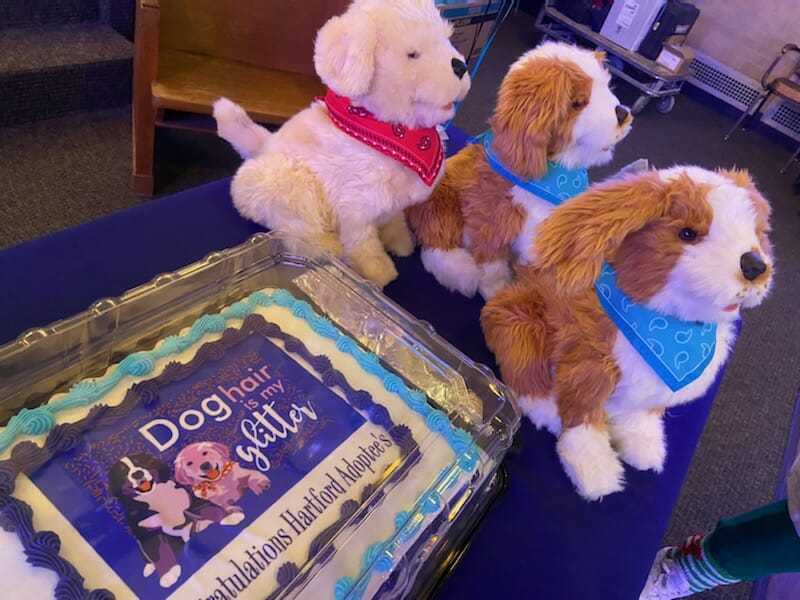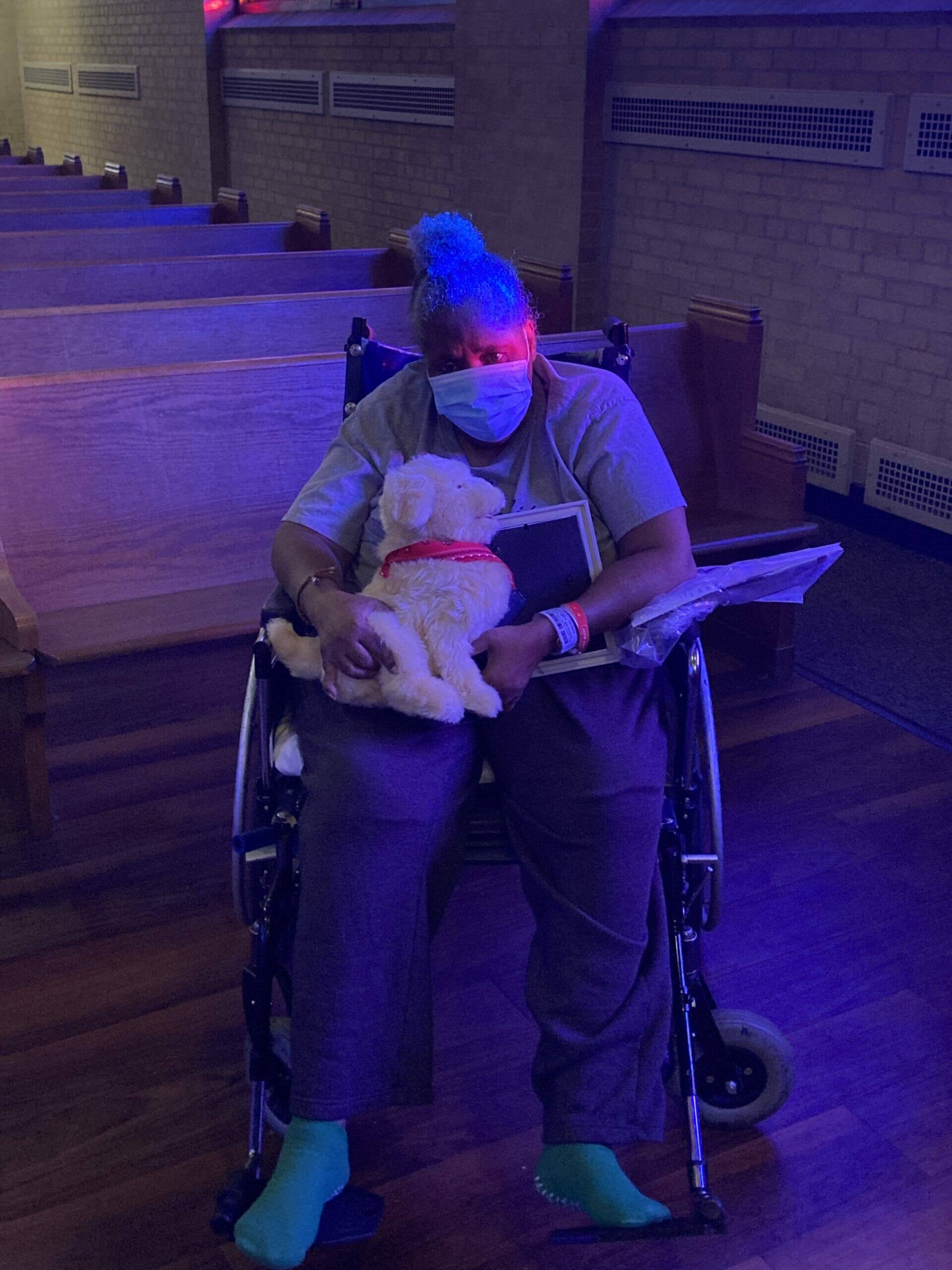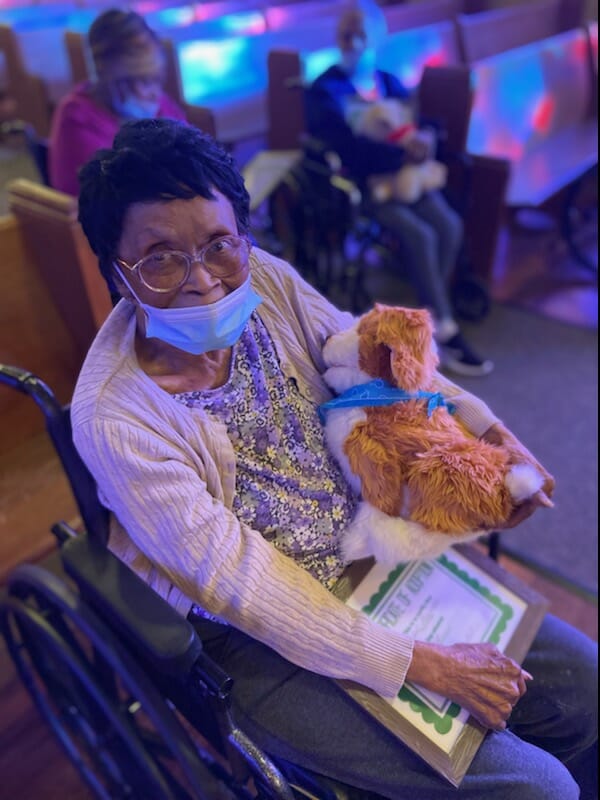
To help address the effects of decreased social activity in older adults, Detroit Area Agency on Aging recently provided robo pets to seniors living in a local long-term care facility in Detroit. The pets although robotic, still help to reduce feelings of loneliness and help to provide older adults with a low-maintenance pet to interact with. The pets were provided as part of a No Wrong Door grant initiative DAAA received from the Michigan Department of Health and Human Services (MDHHS). DAAA is grateful to MDHHS for helping combat the impact of social isolation among older adults.
Isolation is a growing concern in light of the ongoing health crisis we are facing. With a larger number of people spending more time in their homes rather than socializing, it has become clear that loneliness and social isolation can pose long-term health risks, as explained by the National Council on Aging.
Among those most impacted by the effects of COVID19 safety restrictions, are older adults living in long-term care facilities. They are experiencing isolation and loneliness in higher rates than others due to reduced visits from friends and family, as mentioned in an AARP report.
 Patricia, a resident at the long-term care facility, received a robo pet and was excited to name her new robo dog. She remembered her childhood pet German Shephard fondly, so she decided to name her robo pet Rocky, in honor of her former companion.
Patricia, a resident at the long-term care facility, received a robo pet and was excited to name her new robo dog. She remembered her childhood pet German Shephard fondly, so she decided to name her robo pet Rocky, in honor of her former companion.
DAAA also provides wellness calls to participants and some older adults in long-term care housing to help foster social connection. We always look forward to supporting older adults and caregivers by providing solutions and virtual events where older adults and caregivers can connect with each other. To see our upcoming events visit our event calendar.



